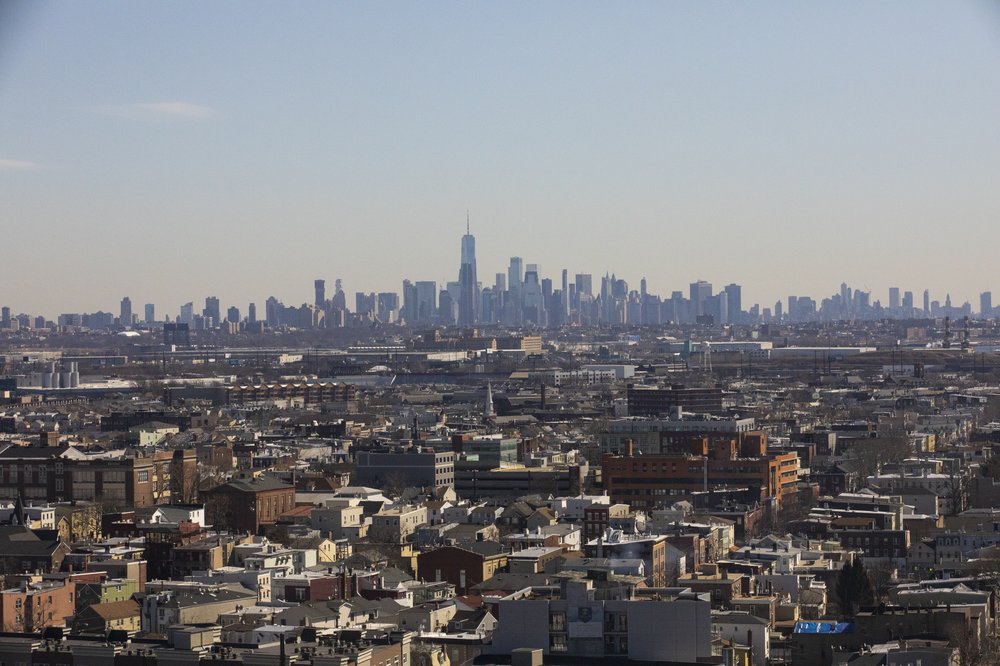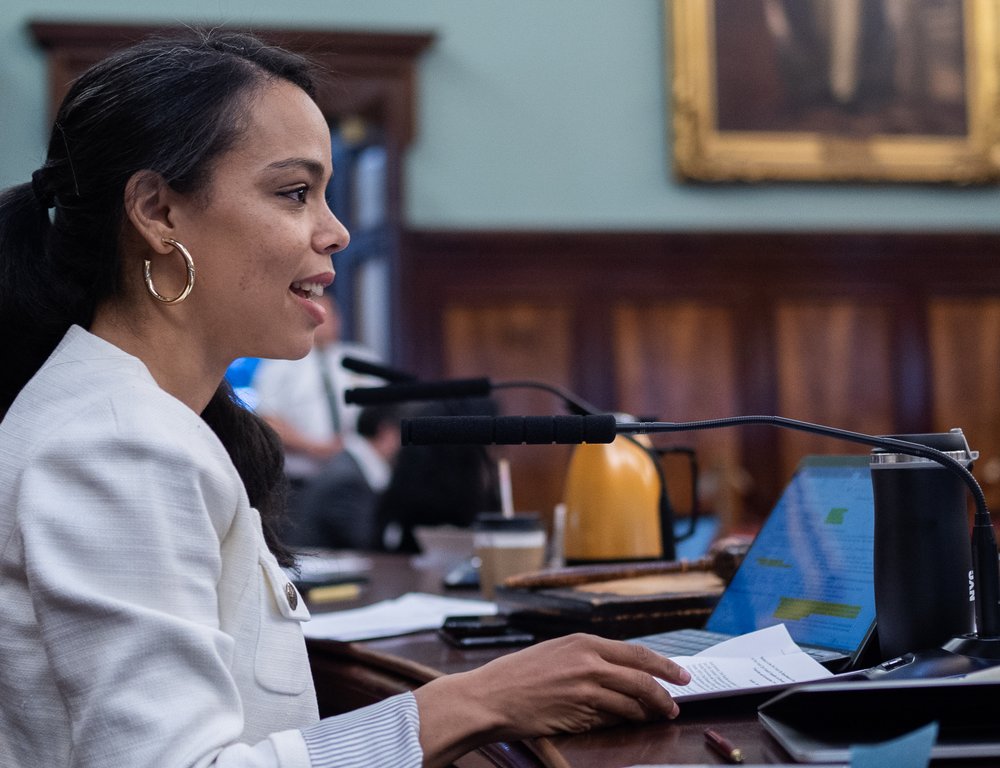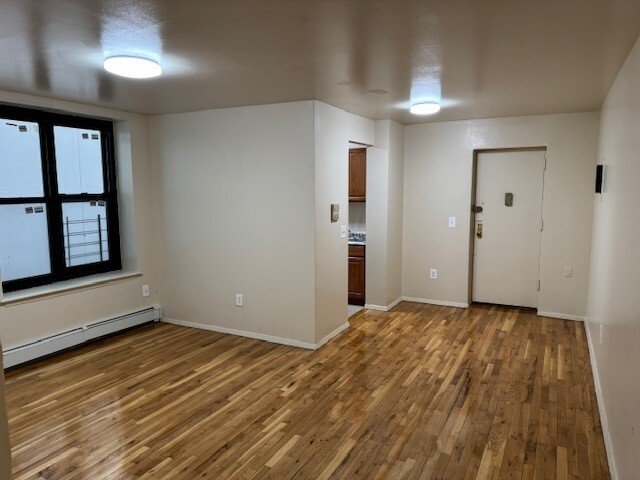NYC has a plan to fill empty affordable apartments — at least for now
April 29, 2025, 6:30 a.m.
Starting May 1, tenants can apply to affordable apartments after a previous tenants move out, without going through the city’s housing lottery system.

New York City has spent billions of dollars building and rehabilitating sorely needed affordable housing for low- and middle-income renters over the past decade. But there’s been a longstanding hitch in the strategy for tackling the city’s severe housing crisis: Thousands of those apartments can sit empty for months after the original tenants leave.
Housing experts blame bureaucratic rules requiring landlords to find eligible tenants through the city’s housing lottery system, known as Housing Connect. That’s about to change — at least for the next 12 months.
Starting May 1, the city’s Department of Housing Preservation and Development will lift lottery requirements for “re-rentals,” allowing building owners to list the empty apartments on sites like StreetEasy after a previous tenant moves out. Apartment hunters can also apply directly through management offices if they learn of vacancies, or use a new re-rental portal the city’s housing agency will add to its lottery website. Applicants will still be required to use Housing Connect for the chance to land apartments in brand new buildings.
The temporary policy change comes after an analysis from the New York Housing Conference policy group and a report by Gothamist detailing the delays that result in empty affordable apartments.
The new waiver will apply to tens of thousands of apartments owned by companies and nonprofits that cap rents for low- and middle-income tenants in exchange for property tax breaks or low-interest loans from the city. Between 2% and 5% of those apartments become vacant every year after other tenants move out, according to the city’s Department of Housing Preservation and Development.
Natasha Kersey, a spokesperson for the housing agency, said the waiver will speed up moves into those empty apartments while officials “revamp” the lottery system.
“With the vacancy rate at an all-time low, we’re overhauling the re-rental process to get New Yorkers into housing faster, cut red tape and meet New Yorkers where they are,” Kersey said in a written statement. “This temporary change helps people get matched with the right home at the right time.”
Council Housing Committee Chair Pierina Sanchez, a Bronx Democrat, has also pressured the city’s housing agency to amend the re-rental process. She will hold a hearing on the issue later today in response to Gothamist’s reporting.
Sanchez said she’s glad to see the short-term fix but that she also wants to learn about the long-term plans for streamlining the city’s lottery system.
“It’s a welcome change,” Sanchez said of the one-year waiver. “But it’s not changing the fundamental issues that are leaving hundreds, if not thousands, of these apartments vacant for too long.”

The new waiver will replace a policy that typically required landlords to fill vacant apartments using long lists of people who created accounts in Housing Connect and indicated they would consider so-called “re-rental” opportunities — and not just in becoming the first tenants to move into brand new buildings, like the shimmering highrises along the Greenpoint or South Bronx waterfronts.
While owners of recently constructed buildings may have no problem finding tenants willing to move in, the search can become more complicated for older buildings, the New York Housing Conference analysis found.
A Bronx two-bedroom priced at just $1,250.85 a month exemplified the delays.
The unit is located on the fourth floor of a 108-year-old walkup recently renovated by the nonprofit University Neighborhood Housing Program. It’s reserved for families earning no more than $101,000 a year.
But the apartment has been empty since June 2023, despite its price and the demand from neighborhood residents, said Brendan Mitchell, University Neighborhood Housing Program’s director of real estate.
Mitchell said the city’s rules prevented his organization from leasing the unit to one of the families that have frequently inquired about vacant apartments with the building's property management office. Instead, the organization was forced to select a tenant through Housing Connect. The problem is, none of the people the group contacted from a list provided by the city were interested in that specific apartment in that corner of the Bronx.

Mitchell said the waiver has already allowed the organization to find a family ready to move in when the change goes into effect on May 1.
“We’re not going to waste any time. We’re going to get people in there,” he said.
His organization found tenants who meet income eligibility rules for 10 vacant apartments previously subject to lottery requirements after city officials advised them in March of the upcoming waiver, Mitchell said.
All of the families have either participated in University Neighborhood Housing Program’s social services, such as financial counseling and free tax preparation, or visited the building’s management office to ask about available units, he said.
“For us, it’s a huge financial shot in the arm to get rent-paying tenants into all of these units,” he said. “And likewise, we can get income-qualified tenants in there who want to be in the community, want to be in these buildings and they don’t care if they’re not brand new construction.”
In many cases, building owners will be able to lease units before submitting proof of income eligibility to the city’s housing agency.
New York Housing Conference Executive Director Rachel Fee said the waiver is a good start after months of discussions but that her organization will continue advocating for a more efficient system over the next year.
“It’s been very clear that the city’s previous policy did not work,” Fee said. “We’ll see what it looks like in 12 months and if it’s not efficient we will be advocating to keep the policy in place.”
A $1,250 2 bedroom in NYC? Here’s why it’s been empty for 16 months. Illegal broker fees could cost NYC real estate agents and landlords $2K per violation Locked out of NYC, Airbnb is now single largest spender in local elections